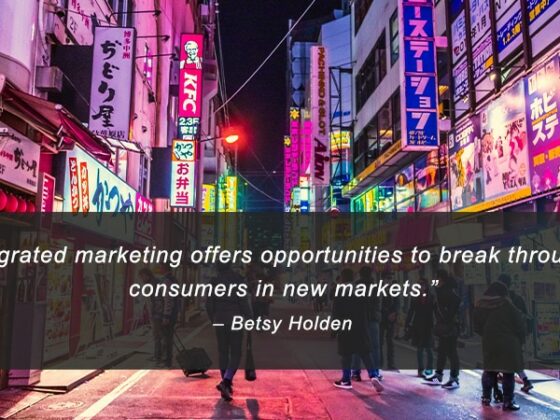Josiah:
Denise Dupré is the founder and managing partner of Champagne Hospitality, a developer, owner and operator of boutique luxury lodging around the world. In this episode, you’re going to hear how she thinks about people and culture building within her business, starting out with why she’s focused her own career on hospitality. Why do you focus on hospitality? What draws you to working in this industry?
Denise:
I would start with a really simple answer. It’s really fun, it’s really invigorating to be part of making people feel special. That’s a good feeling. It’s actually one of the things we look for in our team members when they’re hiring. Does the very extension of helping, of providing experiences that, make you happy too? Because if it does, then it’s an incredible glorious spiral that continues. You’re happy, the guests are happier. Now you’re a happier team member.. would summarize it by saying really putting yourself in the shoes of a guest, to really anticipate and understand, is the beginning of how you deliver an amazing service, really listening.
Josiah:
I’m curious how you think about recruiting, and you touched on some of the elements of what great hospitality is. Obviously, the industry has experienced labor shortages. It is something that continues. I think the most recent industry study even showed a small uptick over the January benchmark report that came out. Maybe it’s transitory, maybe it’s structural, but industry at large has been challenged by this. How have you thought about recruiting talented people into your business? What has that experience been?
Denise:
Well, i think there are some small things in finding the right fit, even having this interview with you. Josiah, you’re smiling a lot in this interview. I think it doesn’t surprise me that you’re in hospitality too, because that’s automatic to you. It’s an enjoyment thing. That’s the first thing. Does the personality fit? Is there a joy that comes from this person? Do they bring up the energy in the room? Training matters a lot. Training can sound like a cliche, but for me it’s really giving people access to people that can mentor them, giving access to new opportunities at a company, really investing in how can I make you grow as a person? How can I make you get better? Because that translates to how they work with guests. Say the other piece, and you mentioned COVID and the difficult times. Now Look, if you hang with your team and take really good care of them when the chips are down, boy, that pays dividends in the long run. We made very conscious decisions during COVID to not let anyone off. We went out of our way to try to improve their own talents. That was pretty tricky. We’re all confined, we’re limited, but English as a second language. For example, on Zoom, we did Zoom yoga classes. We had one of our small liais, do tasting and get everyone on the team even if they weren’t in food and beverage to learn more about lunch. How can you create energy, even if it’s through Zoom? Obviously, hospitality is not a Zoom business. You have to be there to make it happen. Think about your team when the chips were down. That makes a difference. Now, when things are on a roll, people appreciate it just as your guests do. When there’s a difficult situation, if you take extra special care of your guests, for whatever reason, they’re not feeling well, they miss their flight, all kinds of things, even if service isn’t perfect. If you make a mistake and you recover incredibly well, people are pretty understanding and they love that you went out of your way to recover.
Josiah:
For sure, i think when you bring someone new into the organization, that’s a bet, almost right. When you make a decision to take someone and appoint them to a role of more leadership and more responsibility, that’s a bet. I’m curious how you think about making these bets, if you will, on employees. Who do you decide, or how do you figure out? here’s someone that is ready to go to the next level in their career.
Denise:
My radar’s constantly on. I try to stay on the ground and they interact with people at all levels. I want to believe you can detect it early on. I think someone can be really junior in their career and there’s a sparkle there. There’s a willingness, there’s an ambition, there’s a creativity. Are you always right? No, but you make your best bet. I think the other thing that happens with really talented people they get recruited away, right. So one of the things that I’ve made a career of is not accepting resignations When I have What do you mean by that? Like I had. My GM called from one of our properties and said I really sad news this particular person personal circumstances, getting divorced needs to move to a new location. She’s resigning. I said, well, i want to talk to her where I’m not going to accept her resignation. She needs to move. Let’s see. Let’s figure out how she can work from her new location. She travels a lot for her work anyway. How do we support her tough time for her and her family? What can we do for her kids? It’s six years later. She’s still with us. She’ll never forget that right And, by the way, in some ways it made us be better. How do we adapt to new circumstances? How do we make our job even better? even though her location had to change, it happened that her particular job could be in a different location. That’s not always the case for everyone on the team. I had another staff member who got offered a great job. He was a super talent. I knew it. Same thing GM called I’m so sorry. I said well, i’m available now. I want him on a Zoom. I don’t accept his resignation. Heard out his story, he got offered a promotion. I said look, i don’t have that spot available for you today, but you can do this. You’ve earned that. I totally understand why that company wants you. How about this? I want to have your career path. Look even longer. I think you can go even higher than that. You’re in food and beverage now. You don’t have front office experience. How about this? I’m going to move you to the front office. I’m going to get you all that experience. We’re going to skip that next level. When I have an opening, you’re going to go up two spots And the answer, of course, is what? You’re really kidding? I said no, i’m not kidding, you’re a star. Well, and it’s one of those times where, quite honestly, the front office, if that team sits, seriously, you’re going to move this food and beverage person into here Like he doesn’t know anything about front office. I said I think he does, i think he’s got the skill set. Well, guess what? He’s been in that position for six months. I’m ready to move him to yet a next level. That whole front office is like no, no, no, no, no, you can’t take him, we can’t do without him. Now. He’s just doing great. So, recognizing the star, meeting them where they are. Sometimes you can’t solve the immediate need, but if you can get people to take a little longer perspective. They hang with you a little longer And, by the way, this superstar is going to take a number two position at a hotel that we’re opening soon, so I think this one’s just beginning Like we’re on the third loans, but I can’t wait to see what he does after that.
Josiah:
That’s great. You fight for your people. You fight for the importance of talent in the hospitality business. You care, you get creative. You think about okay, how can we make this work? What taught you that as a leader? is there an experience you had or someone you observed? Why do you operate that way?
Denise:
Look, i think growing up in the business you realize how charted it is. You realize how important key people are. I watched in my family operation keeping those key people really mattered. If you are in this business for any period of time, you recognize that turnover is really expensive. Training is really expensive. Recruiting is really expensive. There’s so much expense that goes with swapping that out. And if you are thinking about that, it’s not just about that person the next day, it’s about a whole range of things and the impact on everyone else. So there’s a lot of cost that’s embedded in turnover. And if you are thoughtful about realizing that this isn’t just about I mean there’s a whole P&L implication to saving a talent. It’s just about that one person, it’s about a whole ripple effect to that whole department. I think that thing.
Josiah:
Yeah, for sure. And I guess, just staying on that theme of growth and improvement, you touched on your example earlier around. Sometimes failure happens, right, we drop something, something doesn’t go well. I’m curious how you think about those failures when the outcome is not what you were hoping, and how do you manage around that.
Denise:
Yeah, i think the first thing is being honest, like, don’t make excuses, own it. If you make a mistake, people are a lot more willing to meet you, to be understanding. If you just are really honest, we’re so sorry, this is on us Now. what can we do? Because it’s already happened, can’t stop, whatever it is that happened. And if you also. The second thing I always tell my team have a sense of humor. You know these are typically not life and death situations that go wrong, but they’re correctable if we have a sense of humor about them. And, honestly, if you stop and think about it and I would say most people are this way in some ways, we remember on a holiday what went wrong more than what went right. Like what went right is just kind of part of the daily routine. What went wrong? this is a moment. And then the part two to what went wrong is how did that hotel or restaurant recover from that? Did they do something? to just glue your mind because they didn’t have to do that. Yes, something went wrong. Those are the stories I should get told the most.
Josiah:
Yeah, it’s so true. It’s so true. I think kind of related to that is kind of this notion of constant improvement, right. How do we get better, how do we grow? And I’m curious, how do you think about fostering that culture of constant improvement and growth?
Denise:
Point one good ideas can come from anywhere And I really mean that. I go out of my way to make sure that people are the most connected to guests, have the loudest voices, and that isn’t necessarily the management team. That’s the people that are interacting with guests on a daily basis. And I also encourage trying new things even if they’re going to fail. Right, if you’re scared to try something because you’re afraid that the manager is going to be upset or You know that there’s some negative consequence. Now that doesn’t mean we want to go around making mistakes. It’s not a It’s not a license to just try to make mistakes, but it is a encouragement that If we’re really gonna have breakthrough service, we might not get exactly right, but we’re gonna learn a lot. And if you can test, try it and be really quick on the iterate and be really nimble as an organization, you can take those great ideas that come from anywhere and you can be nimble in the execution may not get exactly perfectly right. You can generate New stuff that’s innovative and thoughtful and differential, and that’s what makes people happy, makes some feel like, wow, i’m surprised. This is terrific.
Josiah:
Give an example that comes to mind from someone that maybe wasn’t in a leadership position, but It a contribution from what they’re seeing and hearing into your business.
Denise:
Yeah, i think sometimes the small things that happen in well. I would use housekeeping teams as an example. They can sometimes understand what it gets me just by virtue of how they interact with the hotel room. For example, look, if you’re at a beach hotel and this week, and presented on a regular basis, most people show up at a beach hotel with sunglasses, most people show up with the beach hotels, sunglasses that have been on the beach and probably sunscreen involved at all, etc. Etc. We regularly clean the sunglasses and leave a lovely with the hotels logo more hot. Lots of hotels do this. But Not only do we leave the clean cloth, we first clean The sunglasses and leave the clean cloth and sometimes our team will even leave a note If they’ve gotten to know that guest. So to create kind of a personalization In interacting with guests. I think it’s hard to see to deliver a good service and I want any of my team To be able to be empowered. Another example you wouldn’t expect someone who’s working on the beach delivery beach towels and water etc. To go the extra mile. But we had a guest who wants on the beach and start learning about his shoulder Because he was out kite surfing and he was lamenting that he shouldn’t have been tight surfing, but I was so much fun and he wanted to do it with his kids, so he’s laying on the beach chair, will? Our beach attendant said that person needs muscle reliever. Went to the front desk. We sent someone into the pharmacy, got the muscle reliever. That beach attendant wrote a note that said help your shoulders feeling better, come see me tomorrow. We left it in that person’s hotel room. That’s a small thing, it’s just muscle reliever. That person came to the beach the next day. Where is Ben? I have got to thank him. I am feeling so much better. Even if he wasn’t feeling so much better, i think it was the love that Ben shared with that guest. Knowing that someone cares is part of it, even if the relief was only temporary or even wasn’t very much. Wow, can you imagine? that beach attendant got muscle reliever to my hotel room.
Josiah:
That’s a good story. Yes, that’s a good story. I appreciate you sharing that because I’m thinking a lot about storytelling and its role to inspire us to deliver great hospitality. There’s thousands of people that are listening to this. they’re going to be inspired hearing that. I’m curious within your organization, how do you amplify these stories? Because maybe I’m not a beach attendant but I think about okay, that was something I can bring into my part of my day-to-day work. Is there anything you do internally within your organization to amplify some of these stories?
Denise:
Absolutely. Sometimes your guest does it for you because they post the very story on TripAdvisor. They tell the story back Even if they don’t. We encourage our team to share with the balance of their team. Hey, here was my shining moment that I delivered for a guest, then that whole department can celebrate that. Then you can have a conversation around okay, what created that opportunity? and hey, wow, everybody understands right, if that’s something we can do for another guest, even for somebody that’s new, yeah, i’m allowed to do that. You start with the inner circle, start with the very department that person works in. It could be it gets to the management level, and not to shout out at a morning management meeting, it could be in a monthly. We tend to do a lot of events with our teams social events. We can do shout-outs sometimes there Guests spread the word themselves. They tell the story to other guests or to friends when they get home. I think good stories and I completely agree with you, josiah Good stories, well delivered and with a little ribbon and a message, that’s really good stuff.





